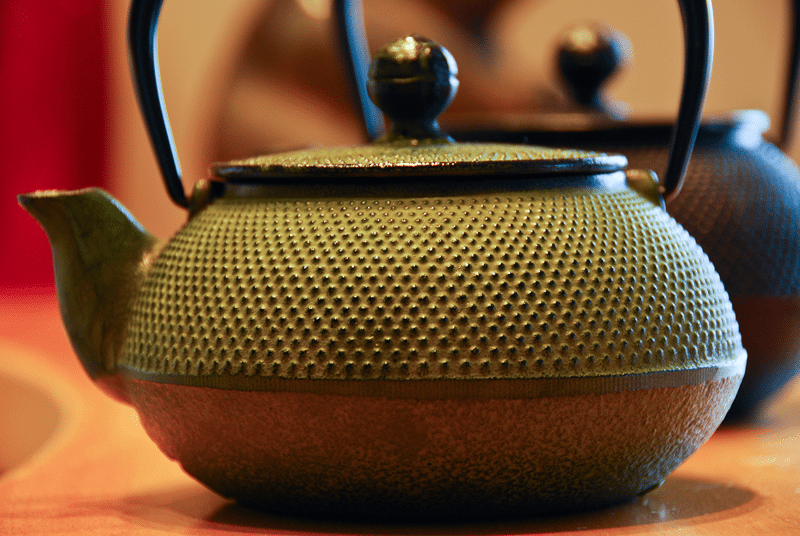Coffee has more caffeine than tea and true teas have more tannins than coffee. Aside from water, tea is the world’s most popular beverage (green being the most common).
Drinking tea or coffee with your meals can limit how much iron (needed for red blood cells) and zinc (needed for immunity) you absorb from the food you’re eating and from the supplements you take with your meals. This is because tea and coffee contain caffeine and tannins.
What differentiates the categories of tea is their degree of oxidation (this is the process in which the tea leaf interacts with oxygen and turns dark). Black tea is oxidized, oolong tea is semi-oxidized, and green tea is not oxidized. All true teas come from the leaves of the Camellia sinensis (“tea bush”) and since it’s the process, not the leaves, which determine the category of tea, the same plant can produce all 3 categories of tea. Rooibus, nicknamed “red tea”, is a tisane rather than a tea, and comes from the leaves of an African legume bush. Red tea contains no tannins or caffeine. Herbal tea isn’t technically a tea either, rather it is made by steeping flowers, roots, leaves, or bark from any plant other than the tea bush.
Tannins are polyphenols (plant-derived antioxidants). Tannins have positive contributions, such as inhibiting the growth of dental plaque, but they inhibit absorption of iron, calcium, and zinc and due to binding with proteins, they decrease one’s ability to digest and assimilate protein. Note that tannins only inhibit the non-heme (plant-derived) form of iron, not the heme form (most iron supplements are plant-derived). Since vitamin C helps to neutralize tannins’ effect on iron absorption adding lemon juice to tea will reduce the negative effect of tannins upon iron absorption (or you could add orange juice to your morning meal). Although rooibos contains a small amount of tannin, the amount is so low that it does not affect the absorption of iron
Caffeine may reduce the absorption of manganese, zinc, copper, iron, magnesium, vitamin A and many of the B vitamins. According to the 2002 study by Tufts University coffee can inhibit iron absorption by as much as 87% if consumed with or up to an hour after a meal.
The estimated caffeine content of coffees and teas are:
Double espresso (2 oz) 45-100 mg
Brewed coffee (8 oz) 60-120 mg
Instant coffee (8 oz) 70 mg
Decaf coffee (8 oz) 1-5 mg
Black tea (8 oz) 45 mg
Oolong tea (8 oz) 30 mg
Green tea (8 oz) 20 mg
White tea (8 oz) 15 mg
Rooibus (8 oz) 0 mg
Herbal infusions (8 oz) 0 mg
In no way does this mean that you should forgo your coffee or tea (unless you choose to for other reasons). What you should do is avoid drinking anything with caffeine or tannins for at least 30 minutes after eating or taking mineral supplements (and waiting for a full hour will make sure you get the most nutrition from your meals).
Use organic coffees and teas to avoid ingesting pesticides, herbicides, and chemical fertilizers.


Trackbacks/Pingbacks